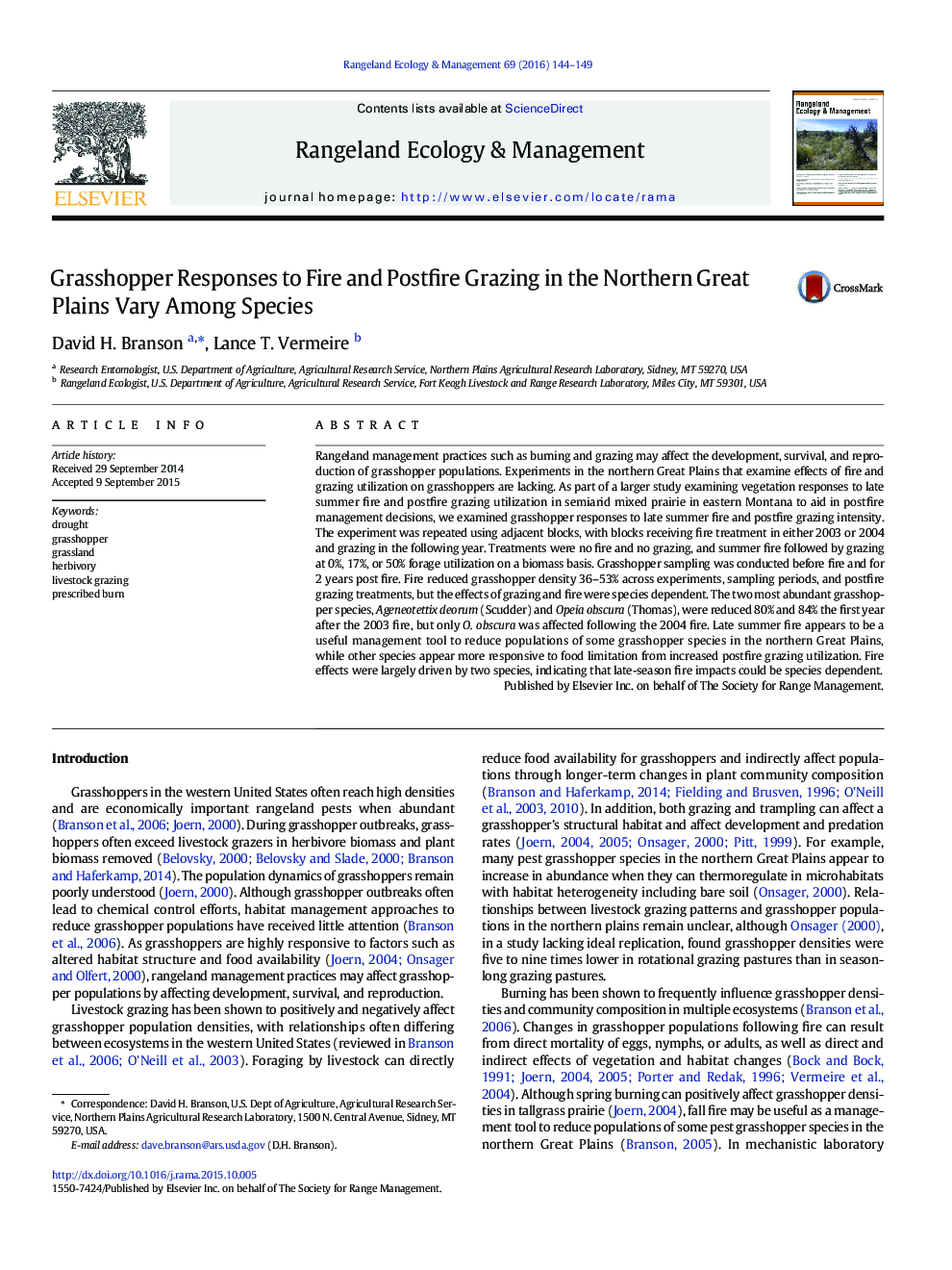| کد مقاله | کد نشریه | سال انتشار | مقاله انگلیسی | نسخه تمام متن |
|---|---|---|---|---|
| 4404195 | 1307143 | 2016 | 6 صفحه PDF | دانلود رایگان |
عنوان انگلیسی مقاله ISI
Grasshopper Responses to Fire and Postfire Grazing in the Northern Great Plains Vary Among Species
ترجمه فارسی عنوان
پاسخ های ملخ به آتش و پس از زایش گاو در دشت شمال شمالی در میان گونه ها
دانلود مقاله + سفارش ترجمه
دانلود مقاله ISI انگلیسی
رایگان برای ایرانیان
کلمات کلیدی
خشکی، ملخ، چمنزار گیاهخواری چراغ دام سوزش مجدد
موضوعات مرتبط
علوم زیستی و بیوفناوری
علوم کشاورزی و بیولوژیک
علوم کشاورزی و بیولوژیک (عمومی)
چکیده انگلیسی
Rangeland management practices such as burning and grazing may affect the development, survival, and reproduction of grasshopper populations. Experiments in the northern Great Plains that examine effects of fire and grazing utilization on grasshoppers are lacking. As part of a larger study examining vegetation responses to late summer fire and postfire grazing utilization in semiarid mixed prairie in eastern Montana to aid in postfire management decisions, we examined grasshopper responses to late summer fire and postfire grazing intensity. The experiment was repeated using adjacent blocks, with blocks receiving fire treatment in either 2003 or 2004 and grazing in the following year. Treatments were no fire and no grazing, and summer fire followed by grazing at 0%, 17%, or 50% forage utilization on a biomass basis. Grasshopper sampling was conducted before fire and for 2 years post fire. Fire reduced grasshopper density 36-53% across experiments, sampling periods, and postfire grazing treatments, but the effects of grazing and fire were species dependent. The two most abundant grasshopper species, Ageneotettix deorum (Scudder) and Opeia obscura (Thomas), were reduced 80% and 84% the first year after the 2003 fire, but only O. obscura was affected following the 2004 fire. Late summer fire appears to be a useful management tool to reduce populations of some grasshopper species in the northern Great Plains, while other species appear more responsive to food limitation from increased postfire grazing utilization. Fire effects were largely driven by two species, indicating that late-season fire impacts could be species dependent.
ناشر
Database: Elsevier - ScienceDirect (ساینس دایرکت)
Journal: Rangeland Ecology & Management - Volume 69, Issue 2, March 2016, Pages 144-149
Journal: Rangeland Ecology & Management - Volume 69, Issue 2, March 2016, Pages 144-149
نویسندگان
David H. Branson, Lance T. Vermeire,
